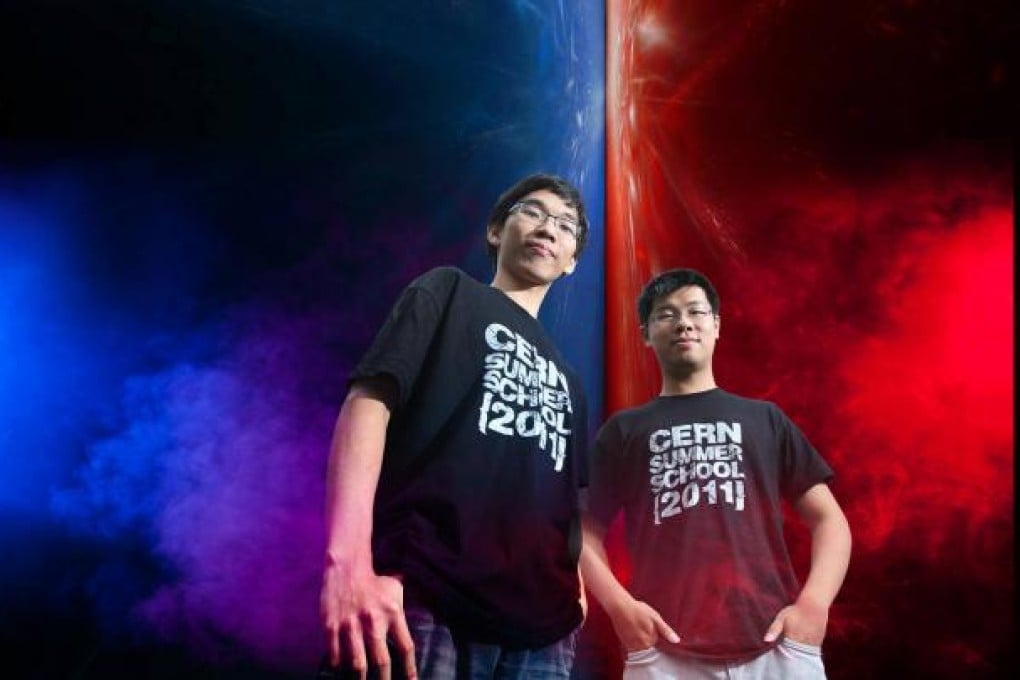'God particle' Part 2
Two local physics students are excited about a big discovery they helped bring about, writes Joyee Chan

News headlines in early July announcing that scientists in Switzerland may have made a key discovery in the field of physics - called the Higgs boson, or "God particle" - excited two young physicists from Hong Kong because they were involved in projects related to the discovery.
Chinese University students Martin Kwok Ka-hei and John Leung Shing-chau worked at the European Organisation for Nuclear Research (Cern) in Geneva, site of the experiment, last summer. Cern's scientists study how the universe was born and what physical laws regulate it.
And then this week, Cern announced that the discovery had cleared another hurdle - peer review. That means other top physicists have read the findings and say they basically agree with what Cern has done.
The Higgs boson has been described as the missing piece in the universal "jigsaw puzzle". The theory by British physicist Peter Higgs in 1964 is that there is a particle that gives things mass. The search for it has been going on ever since. The discovery announced in July is that Cern found a particle that matches the description of what the Higgs boson is supposed to be. To physicists, this is roughly equal to walking on the moon.
Kwok and Leung were two of the top students worldwide who were invited to Cern last year.
To recreate the early conditions of the universe, scientists cause two beams of protons to collide head-on at very high energy in a specially built loop called the Large Hadron Collider (LHC). New particles will form and leave behind footprints as they quickly decay, and scientists analyse the whole process.
But the same data can be used to study other interesting theories, such as a parallel universe and black holes. Kwok, for example, looked for traces of a particle called a pentaquark during his two months at Cern. Leung worked on the frontline to upgrade the hardware for the LHC.